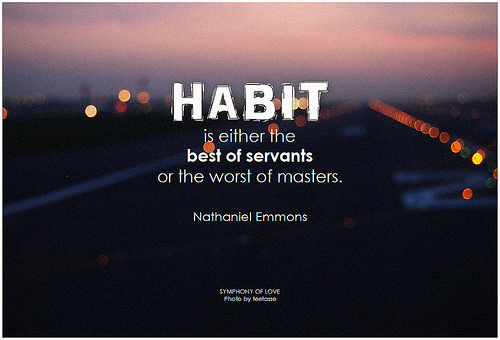We all have issues. Some people think they don’t, believing they have everything totally under control.
But they’re wrong. How do I know? Because we’re all human. And all of us have issues–even if we haven’t recognized them yet.
For this article, we will define an “issue” as something that has become so habitual or necessary to us or hard to let go that we can’t fully control it, and it is causing problems in our life.
“Some get their sense of “self” from gaining and wielding power, others from human approval, others from self-discipline and control. But everyone is building their identity on something.” (Soren Kierkegaard)
If we all have issues, what do we do about it? The first step is becoming more self-aware.
In different situations, our issues can appear in different forms, such as:
- Bad habits: Something we repeatedly do that causes more harm than good.
- Compulsions: An irresistible urge to act a certain way, even against our conscious wishes.
- Idols: Something we turn to instead of God to handle our problems in life.
Recognize Our Issues
To help us in our search for self-awareness, let’s talk about issues many of us encounter.
Anything that begins to control us is an issue. Some of the most common ones include excessive worry, insecurity, people pleasing, depression, and procrastination.
Some things are fine in moderation, but become a bad habit when taken to excess, such as when we develop a dependence on food, television, or sleep to numb our problems.
Sometimes, even strengths taken to extremes can turn into compulsions, such as when:
- Intensity becomes frequent anger.
- Diligence turns into workaholism.
- Leadership evolves into a pattern of manipulation.
- Earning a living leads to excessive pursuit of material things.
“The worst disease which can afflict executives in their work is not, as popularly supposed, alcoholism; it’s egotism.” (Robert Frost)
Addictive compulsions can take many forms in addition to alcohol and drugs, with some people becoming obsessed with gambling, spending, pornography, or codependency.
Beware of Making Idols
All issues can cause problems. Spiritually, though, the most dangerous situation is when we make them into idols that we turn to instead of God to deal with our problems.
“An identity not based on God also leads inevitably to deep forms of addiction. When we turn good things into ultimate things, we are, as it were, spiritually addicted. If we take our meaning in life from our family, our work, a cause, or some achievement other than God, they enslave us. We have to have them.” (Timothy Keller from The Reason for God)
How much does God care about our relentless fixation on idols?
The Bible is clear on God’s views on the matter. The Ten Commandments start with: “You shall have no other gods before me.” To emphasize the point further, the second commandment says: “You shall not make idols…or bow down to them or serve them.”
“It can be family and children, or career and making money, or achievement and critical acclaim, or saving “face” and social standing. It can be a romantic relationship, peer approval, competence and skill, secure and comfortable circumstances, your beauty or your brains, a great political or social cause, your morality and virtue, or even success in the Christian ministry. An idol is whatever you look at and say, in your heart of hearts, “If I have that, then I’ll feel my life has meaning, then I’ll know I have value, then I’ll feel significant and secure.” (Timothy Keller from Counterfeit Gods)
For me, that last quote hits close to home, highlighting some things that keep looking a lot like idols in my life. Too often, I find myself counting on and getting my sense of “self” from:
- My sons, thinking that if they are happy and successful, then my life will be okay too.
- Achievement, or the appearance of achievement, making up too much of my identity.
- Financial security, wanting assets I can touch rather than trusting God to provide.
- Being comfortable, pursuing the myth of a time when all my problems are behind me.
Take a Personal Inventory
We’ve had a good discussion about habits, compulsions, and idols, so let’s check in on how you are dealing with your issues. Which one of these descriptions fits you best?
- You know your issues and are working on them. (Good for you, things will improve.)
- You know your issues but are not working on them. (That’s a dangerous place to be.)
- You don’t know what your issues are. (Time to work on developing self-awareness.)
- You don’t have any issues. (Sorry, but that’s called denial.)
So, what are your issues?
There were over thirty habits, compulsions, and idols listed in the paragraphs and quotes above. Read back through this article and pick out the issues which may be a dependency for you, ones that are causing problems in your life.
Then, think about ones you have made into idols, those you turn to instead of God at certain times and which you have made all-important to your sense of well-being.
If you are now more aware of your issues, and if that gives you concern, that’s actually a good thing. You’re normal, and hopefully you will work on improving in those areas.
If you have read this far and are not at all concerned, you might be in trouble.
Because we all have issues.
Question: Which of your issues causes problems for you or others?
Action: Pick one issue, and make the decision to improve, one day at a time.


